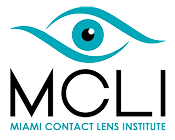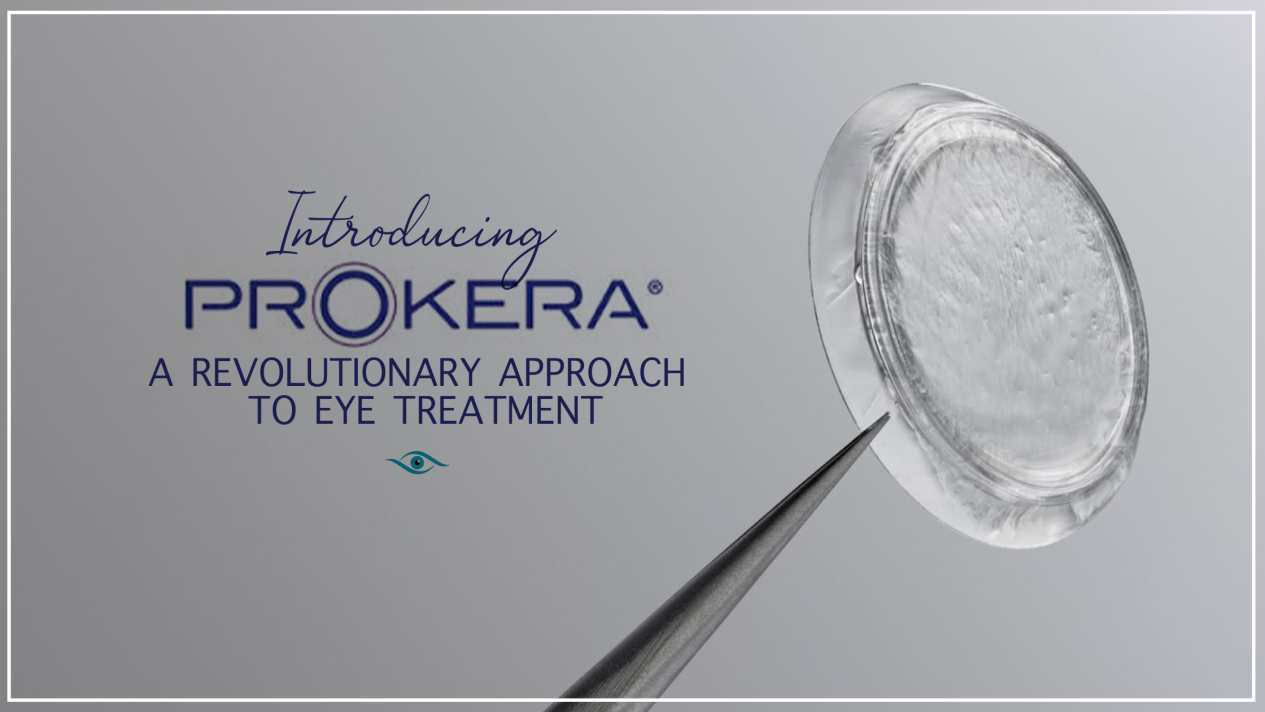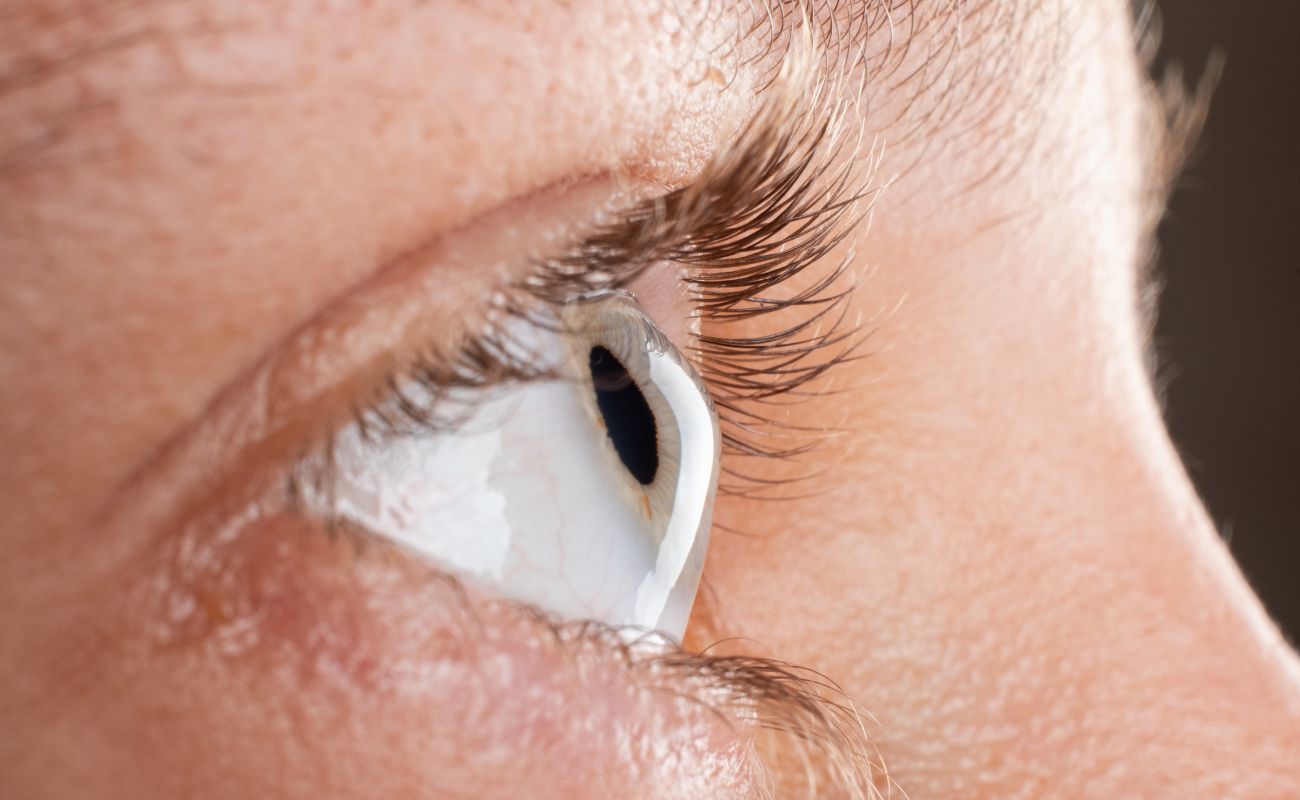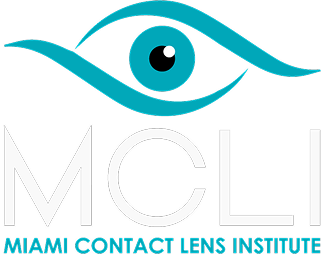Autoimmune disorders can affect many parts of the body, including the eyes. For many patients, this means dealing with eye discomfort, blurry vision, and increased sensitivity to light, all of which can interfere with daily life and overall well-being. Thankfully, modern specialty contact lenses can offer meaningful relief and clearer vision. In this blog, we’ll explore how autoimmune conditions impact the eyes and how specialty lenses can help restore comfort and quality of life.
How Autoimmune Disorders Affect Eyes
An autoimmune disorder is a condition in which the immune system mistakenly attacks the body’s own tissues, rather than protecting them. A healthy immune system regulates countless bodily functions, all of which can be affected by an autoimmune dysfunction. There are more than 80 different autoimmune disorders, several of which affect ocular health. Patients often experience chronic dry eye because their immune system targets the glands responsible for tear production.
Dry eye causes persistent discomfort, blurry vision, inflammation, pain, redness, and sensitivity to light. Some patients experience inflammation of the sclera and optic nerve, which can lead to severe vision disturbances. Due to the range of potential complications, people with autoimmune diseases should have regular eye exams. Early detection can make it easier to treat symptoms before they become long-term problems.
What Are Specialty Contact Lenses?
Specialty contact lenses are technologically advanced and designed to address complex ocular challenges. Traditional soft contact lenses can work wonders for many people. However, patients with more severe issues like gland dysfunction may need more advanced support. Specialty lenses are custom-made to fit the unique topography of each patient’s eyes and meet their specific needs.
Specialty lenses can provide vision correction and relief for complex autoimmune-related eye issues. Many of our patients with autoimmune disease struggle with traditional vision correction due to the dry eye that accompanies immune system impairment. Specialty lenses protect the ocular surface, maintain hydration, and reduce the pain and irritation experienced by patients.
Types of Specialty Lenses for Autoimmune Disorders
There are different types of specialty lenses for individuals with autoimmune disorders. The lenses we provide offer specific benefits and unique qualities that make them suitable for a wide range of individuals. Let’s discuss three of the most common types of specialty lenses to understand what sets them apart from traditional lenses.
Scleral Lenses
Scleral lenses are large-diameter, gas-permeable lenses that rest on the white part of the eye (the sclera) rather than directly on the cornea. They vault over the corneal surface, creating a fluid-filled reservoir that delivers constant hydration and minimizes irritation throughout the day.
These lenses are especially beneficial for patients with severe dry eye, including those with autoimmune conditions like Sjögren’s syndrome, which can cause significant tear film instability. In addition to relieving dryness and discomfort, scleral lenses help improve blurry, fluctuating vision by creating a smooth optical surface. They also shield the eyes from environmental irritants and friction, offering protection and relief in even the most challenging cases.
RGP Lenses
Rigid gas-permeable (RGP) lenses are smaller, firm lenses that are made using an oxygen-permeable polymer. RGP lenses offer superior vision correction for patients with autoimmune conditions who have astigmatism or irregular corneas. RGP lenses are renowned for their exceptional quality and ability to provide a smooth ocular surface, which reduces refractive errors.
RGP lenses can help manage the vision problems typically associated with disorders in patients with autoimmune diseases. While RGP lenses are sufficient for many individuals, they aren’t always ideal for patients with severe dry eye and inflammation.
Hybrid Lenses
Hybrid contact lenses combine the benefits of RGP lenses with the comfort of soft contact lenses. Hybrid lenses have a rigid center and a soft outer ring. Patients who struggle with RGP lenses often find hybrid lenses significantly more comfortable. Hybrid lenses can enhance visual acuity and improve the well-being of those with autoimmune disorders who haven’t achieved success with traditional lenses.
The Benefits of Specialty Lenses for Autoimmune Disorder Patients
Specialty lenses offer significant advantages for patients affected by autoimmune disease. One of the most life-changing benefits is reduced discomfort. Scleral lenses, in particular, maintain continuous hydration to minimize dryness and irritation. Specialty lenses also provide a protective barrier to prevent environmental irritation and avoid the damage caused by friction of the eyelids.
Enhance Your Quality of Life With Specialty Lenses
Living with an autoimmune disorder presents unique challenges, including ocular irritation and vision problems. However, specialty contact lenses offer improved comfort, enhanced vision, and a better quality of life for patients with autoimmune conditions. Whether you’re struggling with severe dry eye or corneal irregularities, advanced specialty lenses offer a customized solution.
If you’re interested in exploring specialty lenses, contact Miami Contact Lens Institute to schedule an eye examination. We will carefully assess your issues, how they relate to your autoimmune condition, and which lens type may be best suited to your situation. Ocular discomfort can affect every facet of your life, so don’t hesitate to reach out for expert support and targeted treatment.






